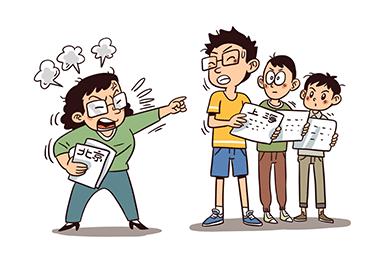• Why did she say she was “a failure as a teacher?” She’s actually a successful teacher. She taught three good students to have clear minds, think independently and be strong-willed.
• The “top two” are indeed very good, but if educators, parents and students obsess over them, that distorts the meaning of education. They are turning education into a cult.
• I graduated from Zhejiang University and made the same choice: skipping on Tsinghua and Peking University despite qualifying. I’ve always regretted it. Majors aren’t that important. You can switch majors or self-study. The prestige of the “top two” is so great that you’ll regret not going if you had the chance. Source: Zhihu, Sina Weibo
Zhang Xuefeng, education and career consultant: Entering a top university does not guarantee success. Compared with a less popular major at a top school, a suitable major at a less prestigious university can better change the fate of students from ordinary families. Faced with bleak employment prospects, it’s time to rethink the purpose of education. Source: Douyin livestream on July 8
China Youth Daily, official newspaper of the Communist Youth League: The teacher’s remarks are highly inappropriate, but the deeper issue is why so many educators are obsessed with the “top two,” that they ignore students’ personal goals and career plans. One key reason behind is that many high schools and local education authorities offer financial incentives to teachers whose students get in to the “top two.” Source: China Youth Daily website
Beijing Evening News: The purpose of education is to let a flower grow into a flower and let a tree grow into a tree. These distorted, prestige-oriented values and twisted teacher incentives have strayed from the true nature of education. Source: Beijing Evening News website
July is the crucial month when students send in university applications based on their national college entrance exam scores. But this year, social media erupted after several high-scoring students chose to pass on what for so many others is a dream opportunity: applying to China’s top two universities.
The hubbub began when a teacher surnamed Qi from Ruichang No.1 High School in Jiangxi Province expressed anger in a teacher-student chat group on July 5, harshly criticizing three students for choosing not to apply to Tsinghua University and Peking University, the nation’s top-ranked institutions.
The three students, whose scores exceeded the admission thresholds for many programs at both universities, instead chose to pursue their preferred courses at less prestigious colleges in Shanghai. The teacher called them “purely self-centered” and “treacherous,” saying their choices made her feel like “a failure as a teacher.”
Her remarks were leaked online the next day, sparking heated discussions. Many argued that the teacher was the selfish one, as she disregarded the students’ aspirations. Some pointed out that local education authorities give bonuses to teachers whose students are admitted to the “top two,” suggesting that she was sour over the missed payday. Others felt that the students might regret the opportunity, as both host China’s most elite students and teachers.
This is not a single case. Increasingly, students are choosing popular, career-oriented majors at smaller colleges over less in-demand degrees from elite universities. Many netizens see this as a sign that students are becoming more practical in making college choices and prioritizing job prospects over university prestige – in part a result of high youth unemployment. According to the Ministry of Education, the number of new university graduates across China is projected to reach 12.22 million in 2025, while the National Bureau of Statistics revealed that unemployment rate among 16- to 24-year-olds not currently enrolled in school remains high at 14.5 percent in June.

 Old Version
Old Version